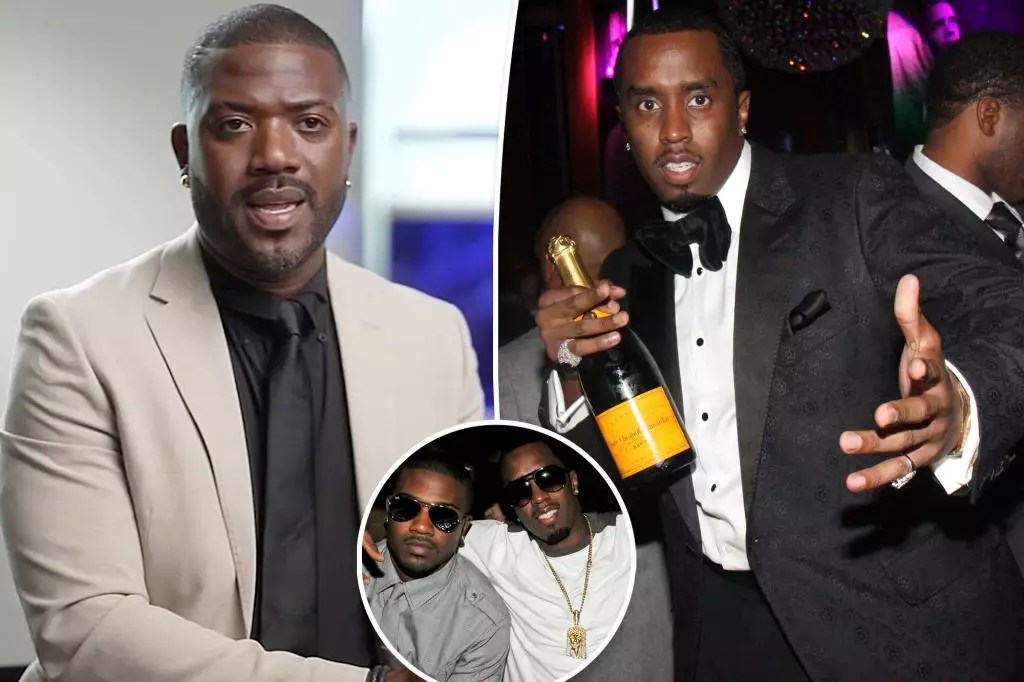The entertainment industry has long been entangled in a web of secrecy, where the powerful wield their influence to manipulate narratives and maintain their public images. In a recent conversation with Harvey Levin from TMZ, singer Ray J brought to light some disturbing trends within this secretive culture, particularly regarding the legal troubles surrounding music mogul Sean “Diddy” Combs. According to Ray J, there is an undercurrent of “catch and kill” tactics where individuals are allegedly compensated to remain silent about their experiences, thus perpetuating a cycle of victimization.
Ray J’s claim about celebrities using financial incentives to suppress uncomfortable truths raises questions about accountability and the role of money in maintaining a facade. While such practices are not exclusive to the music industry, their prevalence reflects a troubling aspect of celebrity culture—where the desire for fame often comes at the expense of truth and justice.
During the interview, Ray J mentioned that many high-profile individuals have approached him, expressing their desire to share their stories linked to Diddy. His assertion that these conversations occur behind closed doors emphasizes the complexity of victimhood in an industry where the stakes are exceptionally high. People who suffer in silence often grapple with the fear of personal and professional repercussions; hence, the “trust” that these victims apparently find in Ray J is significant.
Moreover, this revelation taps into a broader societal issue where the narratives of victims are silenced, overshadowed by the allure of celebrity. Ray J’s claim that he has “said too much” but still feels compelled to speak draws attention to the tension between wanting to reveal the truth and the inherent risks involved in doing so. It suggests a profound struggle for authenticity in a space dominated by public relations and image management.
The gravity of Diddy’s current legal challenges adds more layers to Ray J’s revelations. Accusations concerning sex trafficking, racketeering, and a multitude of sexual assault claims signify a seismic shift in how the complexities of celebrity culture are scrutinized. Texas-based attorney Tony Buzbee’s assertion that the list of Diddy’s alleged accomplices would “shock” the public points to the extent of the issues at play. This sentiment indicates that the truth may be even darker and more extensive than what has been shared publicly, suggesting a systemic problem where powerful individuals escape accountability.
The nature of the legal allegations introduces a perilous climate where previously untouchable figures may finally face scrutiny. A-list celebrities who tacitly enabled or engaged in questionable behavior under the cover of star-studded parties might soon find their choices coming back to haunt them. As the saying goes, what happens in the shadows will eventually be brought to light.
Buzbee’s commitment to “expose the enablers” is crucial in this narrative. The legal landscape is not merely about the alleged wrongdoing of one individual but also about the pervasive culture of complicity that allows such behavior to persist. This culture, rich in denial and silence, enables abusers to thrive, allowing the powerful to exert influence without facing the consequences of their actions.
As more individuals are encouraged to come forward and share their experiences, the dynamics between victims, enablers, and perpetrators will inevitably change. The role of the media will also be vital in shaping public perception and holding those in positions of power accountable. As we witness the unfolding of these events, it’s critical that society demands transparency and justice rather than dismissing the revelations as mere gossip.
The revelations made by Ray J regarding Diddy represent more than mere sensationalism; they highlight a pressing need for accountability and the confrontation of uncomfortable truths in the entertainment industry. As individuals begin to navigate the treacherous waters of speaking out, it becomes imperative for society to foster an environment that empowers victims rather than silencing them. Henceforth, courage should be celebrated, and the voices of those willing to challenge the status quo must be amplified. In doing so, a new narrative may emerge—one not dictated by money and influence, but by truth and justice.







Leave a Reply